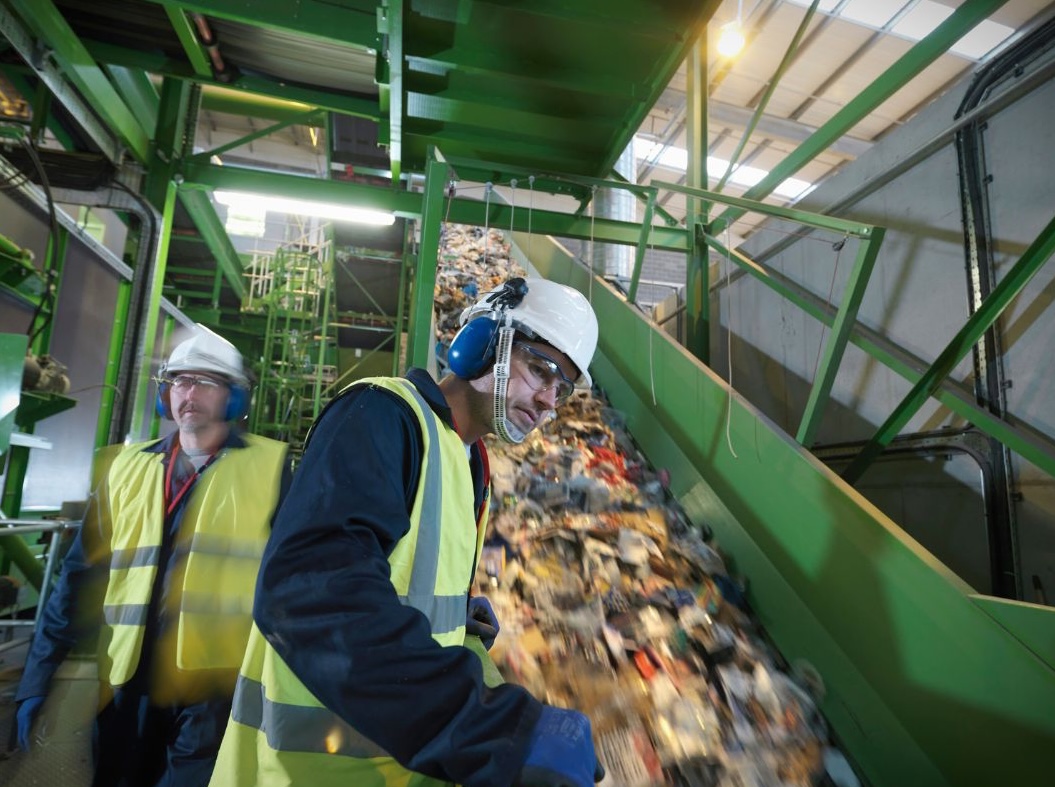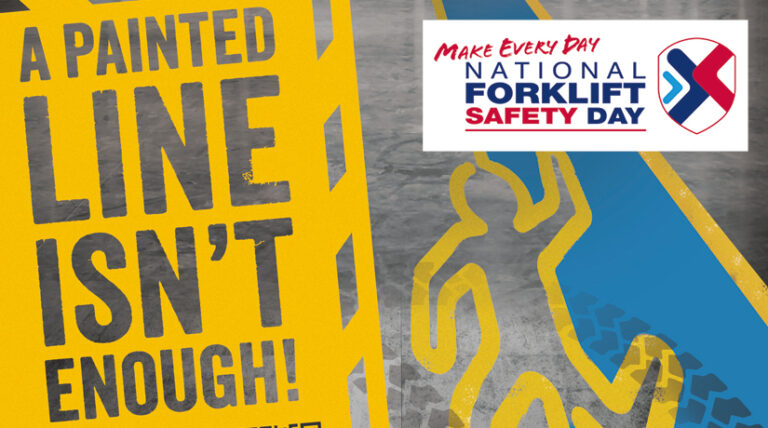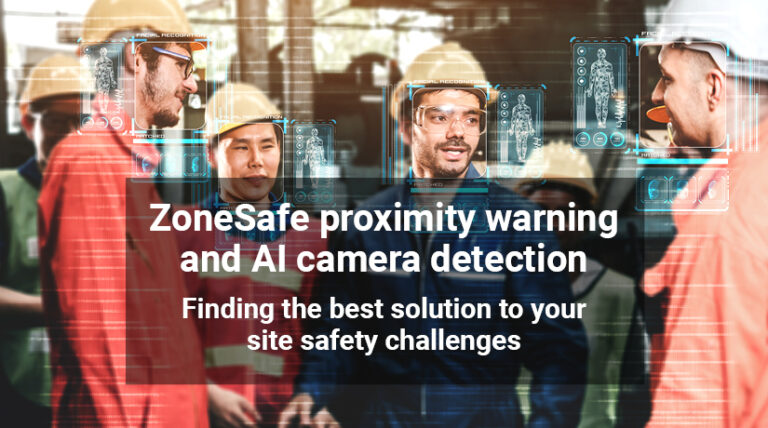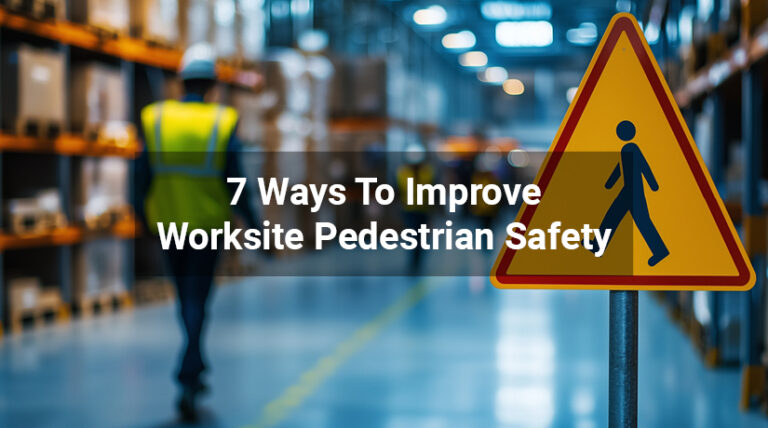The recycling & waste industry can experience many safety risks.
144 workers were killed on site in the year 2017/2018. The Health and Safety Executive (HSE) reported that these fatal injuries increased by 9 fatalities from the year 2016/17, but in statistical terms, the number of fatalities has remained broadly level in the recent years.
There were 12 fatal accidents for workers in the recycling & waste industry in the year 2017/2018, according to the HSE. This is slightly above the annual average number of fatalities over the last 5 years.
The highest number of fatalities was, and continues to be, when in contact with moving machinery – a huge 32% of workers. It is closely followed by struck by a moving vehicle – 27% of workers.
Be aware of the safety risks
There are many safety risks in the workplace. If you can prepare for the inevitable risks, you can prepare your workplaces with the correct safety features to protect your staff.
So what are the main reasons for fatal injuries?
- Falls from a height
Working from height is extremely common in the workplace. These incidents can include falling from ladders, gantry cranes and pylons. In the year 2017/18, 35 fatal injuries to workers were due to falls from a height. This compares to 27 in 2016/17 and an annual average over the period 2013/14-2017/18 of 37.
- Struck by a moving vehicle
This can include a pedestrian being hit by a forklift, a refuse collection vehicle at a recycling plant or a reach stacker at a port or terminal. Being struck by a moving vehicle accounted for 26 fatal injuries to workers in 2017/18 compared with 30 in 2016/17 and an annual average of 26 over the period 2013/14-2017/18.
- Struck by moving/falling object
Workers can easily be fatally injured when struck by a moving or falling object. This could be a moving part of machinery, something that was stacked too high in a warehouse, or tools used at height. The number of fatal injuries caused by being struck by a moving, including flying or falling, object has fluctuated between 15 and 23 in each of the last five years, with an annual average of 19 over the period 2013/14-2017/18.
- Trapped by something collapsing/overturning
Machinery and vehicles can collapse and overturn. Forklift trucks can overturn if over stacked and kill pedestrians, over stacked warehouses can topple and injure, and heavy machinery can overturn and crush workers.
- Contact with moving machinery
Moving machinery, whether large or small, can injure workers. Parts of a machine can cause lacerations or can crush limbs, hands and fingers. Often rotating mechanical equipment can cause injury with rotating parts, moving belts, cutting teeth or meshing gears.
Risks within the waste and recycling industry
Waste and recycling, along with agriculture, have the highest rate of injury, with a rate of 16 times as high as the average across all industries respectively.
Health and Safety breaches at waste and recycling plants cause life changing injuries
In 2017, Jack Moody Recycling Limited was found guilty of breaching section 2 (1) of the Health and Safety at Work etc. Act 1974, after a worker suffered life changing injuries. The events:
‘On December 5th, 2014, an employee was struck by a shovel loader whilst carrying out his litter picking duties. The employee was stood next to a wall at the plant, and the driver of the shovel loader mistakenly thought he had hit the wall. The driver got out of his cab to check for damage and identified that he had not struck the wall but the employee. *
The employee was airlifted to hospital where he underwent surgery, but consequently suffered two leg amputations below the knee. The employee now has to live with life-changing injuries which could have been prevented if the company had proper risk management controls in place.’*
In January 2019, Veolia ES (UK) was fines £1m after one of its employees was run over and killed by a refuse vehicle (RCV). The London-headquartered waste giant was found guilty of breaching health and safety at work legislation and also ordered to pay costs of £130,000. The events:
‘Canterbury Crown Court heard that John Head suffered fatal injuries on 18 October 2013. He was struck by a reversing RCV while walking across a yard at Ross Depot Waste Transfer Station in Folkestone, Kent, and pronounced dead at the scene.
An investigation by the Health and Safety Executive (HSE) found that multiple vehicles, including articulated lorries were moving around the yard with no specific controls.
The court heard that the company failed to assess the risks involved in the yard adequately and did not implement industry-recognised control measured to protect employees.’**
So how can you protect your employees?
Ensure that you have the correct safety procedures in place. When pedestrians work in close proximity to moving vehicles, a Proximity Warning Alarm System (PWAS) is perfect.
ZoneSafe used radio frequency identification (RFID) technology that creates detection zones around vehicles, assets, crossing points and walkways.
How does it work?
Active tags are worn by personnel, fitted to assets or set up around hazards. They are identified by the system when entering the detection zone. This triggers an audible visual alert, warning vehicle operators of the tag’s close proximity to the vehicle. ZoneSafe tags do not require line of sight and will be detected regardless of obstructions, blind spots or poor visibility.
Find out more at www.zonesafe.net
*Wirehouse Employer Services https://www.wirehouse-es.com/2017/10/30/accidents-at-work-recycling-waste-industry/





